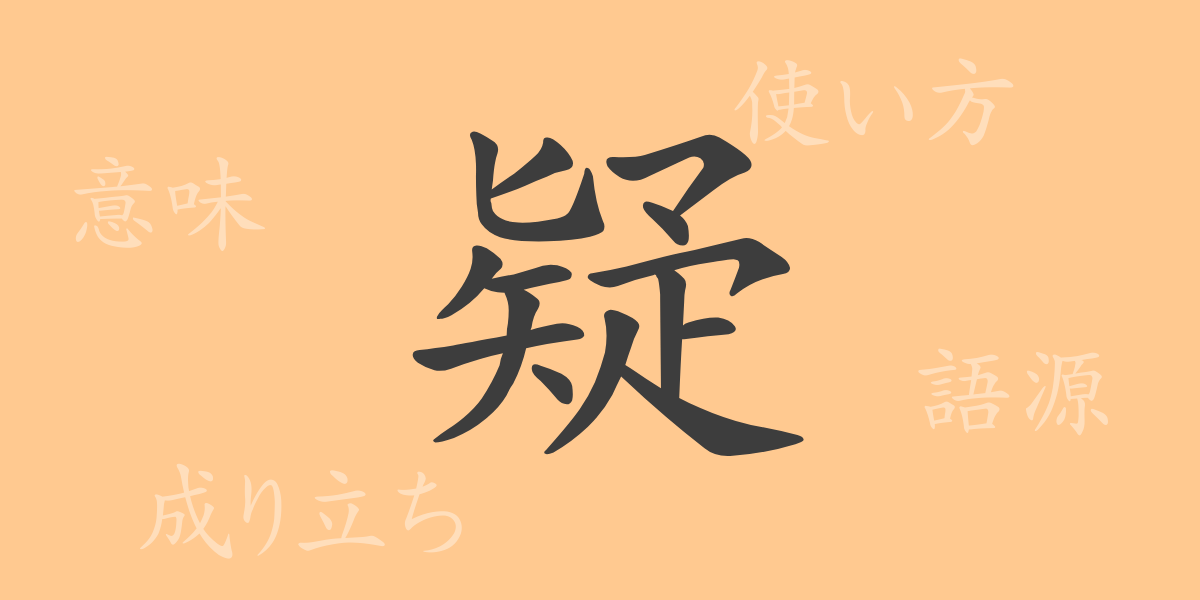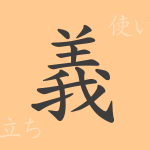Each character has a background in its formation, and its usage reflects culture and history. The Japanese common-use kanji “疑” (gi) is no exception. This article delves into the origins, meanings, readings, and commonly used idioms and expressions of the kanji “疑” (gi). Let’s explore the full scope of “疑” (gi) and appreciate the depth of the Japanese language.
Origin of the Kanji “疑” (語源)
The kanji “疑” (gi) is composed of the radical “疒” (byou, meaning sickness) and the phonetic component “疑” (gi). Originally, “疒” related to illness, but it evolved to represent a state of mind, giving “疑” (gi) the meaning of “doubt.” Doubting signifies a state of uncertainty in the mind, hence “疒” is used to represent the unsettled state of mind.
Meaning and Usage of “疑” (gi)
The kanji “疑” (gi) means “to doubt,” “to be skeptical,” or “to suspect.” When we doubt something, we experience uncertainty and mistrust. “疑” (gi) is used to signify raising questions or expressing doubt about unreliable information. It is also used in legal terms to indicate suspicion of innocence, highlighting misunderstandings or false accusations.
Reading, Stroke Count, and Radical of “疑” (gi)
How is the kanji “疑” (gi) read and what are its features in the Japanese language?
- Reading: The on-yomi (Chinese reading) is “ギ” (gi), and the kun-yomi (Japanese reading) is “うたが.う” (utagau).
- Stroke count: 14 strokes in total.
- Radical: The radical is “疒” (やまいだれ, yamaidare), meaning sickness.
Idioms, Proverbs, and Expressions Using “疑” (gi)
There are many idioms, proverbs, and expressions in Japanese that include the kanji “疑” (gi). Here are a few examples:
- 疑心暗鬼 (ぎしんあんき, gishinanki): When doubt fills the mind, even non-existent things seem suspicious.
- 疑問を抱く (ぎもんをいだく, gimon o idaku): To have doubts or uncertainties about something.
- 無実の罪を疑われる (むじつのつみをうたがわれる, mujitsu no tsumi o utagawareru): To be suspected of a crime one did not commit.
- 疑義を挟む (ぎぎをはさむ, gigi o hasamu): To raise doubts or objections about something.
Summary on “疑” (gi)
The kanji “疑” (gi) has been used to represent the uncertain state of the human mind from its formation to modern usage. In Japanese, it plays a crucial role in expressing doubt and uncertainty. Idioms and expressions containing “疑” (gi) reflect such psychological states, showcasing the richness of Japanese emotions and thoughts. Understanding this single kanji broadens the scope of Japanese expression, enabling deeper communication.

























